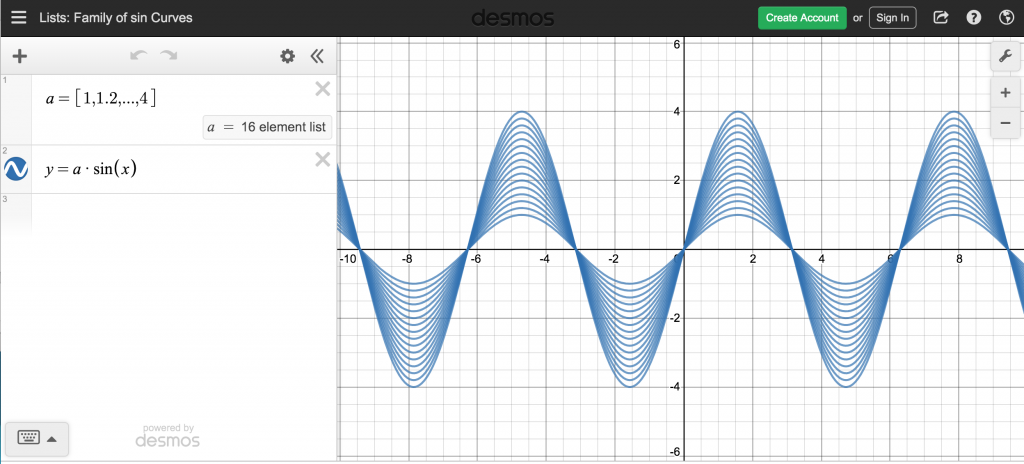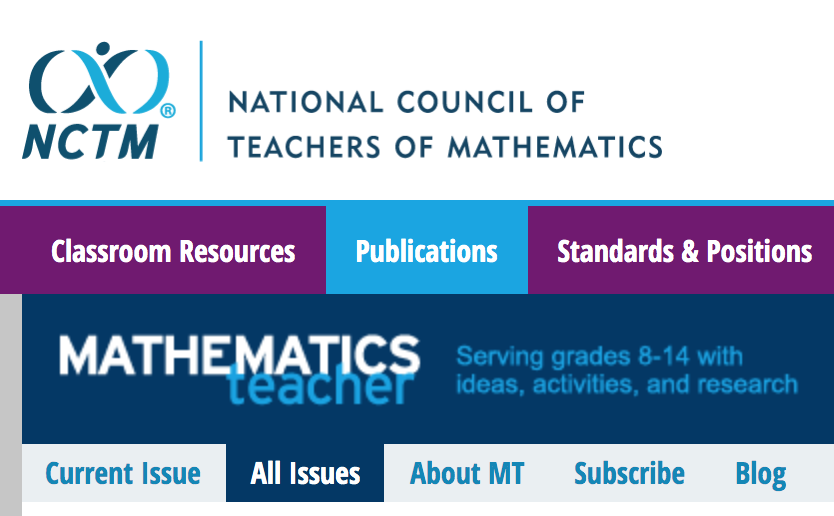
“Doors”by susanvg is licensed under CC BY-NC-SA 2.0
I have been a mathematics and computer teacher for almost as many years as I have been a music teacher. I have wanted to do a Masters for a long time, but could not find an area for a thesis or research project that was interesting yet was not already well developed. It has become clear to me recently that although there are many online resources for students, it is difficult for students to find what they need in terms of exercises because they do not know what they need! They can google a Khan Academy (n.d.) video and do multiple choice exercises, but they need to know the correct mathematical terminology for what they are looking for, and that can be a difficulty. These resources are just another lecture-style explanation, with no interactivity, limited motivational factors, no skill building in recognizing patterns or looking at habitual mathematical errors, and no relevance to using mathematics in real-life situations. There are some wonderful online mathematical resources, but most sites require membership to either access questions or to track progress. The majority of the sites do not adhere to British Columbian privacy laws (OIPCBC, 2012) and/or require a monetary contribution.
We have many international students coming to our schools whose curricula do not follow the same layout as ours. In mathematics class, they either repeat a significant amount of material or they flounder without sufficient background in some areas. Some of these students are very motivated, but their English may not be sufficient for the videos at Khan Academy, plus the American system does not organize its courses with mixed mathematics as we do. At school, we have students that would like to accelerate their mathematics in order to complete both Pre-Calculus 12 and an International Baccalaureate (IB) Mathematics 12 course. Their maturity level may have prevented them from successfully accelerating in Middle School and therefore doing some extra math during the year or during the summer would help them accomplish this goal. I currently have a dozen students working on math this summer who are supposed to contact me with problems, but there has been radio silence. Is this because they are doing well or is it because they are doing nothing or is it because they do not want to bother me? At the end of summer, they are going to show me the print resources they have worked through and then challenge a math course based on our school and British Columbia (BC) Education requirements (see BC ministry of Education, n.d.).
I have been reading and blogging about different articles about online math courses, motivation and self-regulation in these courses, and opportunities in interactive online math activities (“It’s Like Scrabble” and “Action Research”). I found an entire “Mathematics Teacher” journal published by the National Council of Teachers of Mathematics (n.d.) on Teaching Math Online (2016). The article I chose for this blog is Designing Online Playgrounds for Learning Mathematics by Johnson, Hornbein, and Bryson (2016). In our grade 6 though 10 courses, as an IB Middle Years Programme school, we regularly involve our math students in investigating patterns and applying mathematics to real-life situations. They can be as simple as a five-minute pattern recognition or a three-hour pattern investigation or real-life problem solution. I was hoping this article could provide ideas on how to develop these as interactive tools.
Figure 1: Webpage for the American National Council of Teachers of Mathematics
The article was written by an associate professor of mathematics education (Johnson), an IB high school teacher (Hornbein), and a middle school math teacher (Bryson), all from Colorado. The two teachers participated in a fully online mathematics education course designed and taught by the associate professor. “Johnson developed online playgrounds— instructional experiences with multiple entry points—incorporating three types of playground equipment: online interactive tools, video conferencing, and social media.” (p. 299) The teachers then began incorporating them into their classrooms. When using online interactive tools, they required students to take multiple screenshots of their work to share reasoning methods as well as errors and how to recognize them. Zoom (n.d.) videoconferencing was used to create a video record of a conversation about an assignment, and then edited to hand in as an assignment. Videoconferencing was later used, with Zoom’s shared whiteboard as well as an online interactive tool, for one of the teachers to help a student individually. Students subsequently used the shared whiteboard feature to collaborate to solve homework problems, taking screenshots along the way. Hornbein also used Twitter (n.d.) to interact with students. Some students really enjoyed Twitter conversations, but considering the privacy requirements in Canada, this is likely not a possibility for our students.
The articled references PBS Education (n.d.), but all the activities are behind a login and their privacy settings do not adhere to an acceptable Canadian level. Although, it could be a good source of inspiration. The article also references Desmos, an online graphing tool with lessons available behind a login, and it has much stricter privacy settings than PBS Education. Even without signing in, Desmos has good access for graphing use.

Figure 2: Desmos interface
The National Council of Teachers of Mathematics has an activity page and a blog which may be useful or, again, at least a good source of inspiration for activities. The site listed that had the most potential for creation of activities is no longer active, and the java set of files appeared corrupted.
From what I can see, the problem is the lack of curated engaging free activities for math learners. Even the BC Education website only connected to the BC Educational Resource Acquisition Consortium (ERAC) (n.d.) which had a short list of print resources (accessible after a membership fee was paid).
Where I would like to go with my project is:
- Diagnostic tools for elements of BC curriculum mathematics skills required by course, particularly Foundations of Mathematics 10 and Pre-Calculus 11, where students can find out what elements they have mastered which course they are ready for. What is out there? What do I need to create as an online tool? Or is a print tool sufficient for a diagnosis?
- Curate/create a list of videos, interactive exercises, and real-life applications that are not behind costly or sites with questionable privacy settings. Ideally, most would have the opportunity for translation into other languages. These would be linked
-
- from the mathematical content areas from the diagnostic tools
- from a list of mathematical content by course
- from a list of competencies
- from a list of big ideas
- from a list of curricular competencies
Where would the tolerance level of privacy be set? How could a parent make a choice about their student’s access to a site where my recommended level of tolerance is not met? Do I want to even go there? I need to learn more about reading through privacy settings.
-
- Find a safe online community so students can communicate with each other and with mathematics teachers to clarify, get help, or commiserate with others. We have found the value in a personal professional learning community and our students in face-to-face classes have a classroom and school community. How can we foster this community for online learners?
- Ensure there are motivational elements:
- a student can track their improvement and use of all resources (and keep it in Canada)
- there are puzzle challenges to improve pattern recognition
- there is linking to what they already know well
- there is application to real-life problems including ones they will experience (ever try to figure out how to split a restaurant bill and tip?)
- there are authentic links to Indigenous cultural content and Canadian settler cultural content.
- As mentioned in a previous blog, “It’s Like Scrabble,” I want to include the types of questions found on our BC Education Numeracy Assessment which is now required of students graduating in BC. The cultural basis of some of the questions excludes our international students from experiencing success (although I have limited data). This new graduation assessment should not require preparation, but those new to BC or Canadian culture find some of the situational questions posed are inaccessible.
- Could I extend it to include areas students may want to explore? Like Pacific School of Innovation and Inquiry except with suggestions because most students don not know what is fun about math?
I can not create a Canadian Khan Academy, but I want our students to be able to diagnose the areas they need to work on, find good interactive resources without having to sign in, be able to track their work simply for evidence (will look at WordPress multi-site (private to network) with both instructor and learner blogs and perhaps a Buddypress plug-in), experience enjoyable math activities that spark their interest, and find a community of math helpers the way our face-to-face students have found in the classroom and in our Math Help Centre.
Bibliography
British Columbia Department of Education. (2019). Course Challenge. Retrieved from https://www2.gov.bc.ca/gov/content/education-training/k-12/support/graduation/getting-credit-to-graduate/course-challenge.
Gu, P., & Lee, Y. (2019). Promoting Students’ Motivation and Use of SRL Strategies in the Web-Based Mathematics Learning Environment. Journal of Educational Technology Systems, 47(3), 391–410. https://doi.org/10.1177/0047239518808522
Johnson, H. L., Hornbein, P., & Bryson, D. (2016). Designing Online Playgrounds for Learning Mathematics. The Mathematics Teacher, 110(4), 298–303. https://doi.org/10.5951/mathteacher.110.4.0298
Kim, C., Park, S. W., Cozart, J., & Lee, H. (2015). From Motivation to Engagement: The Role of Effort Regulation of Virtual High School Students in Mathematics Courses. Journal of Educational Technology & Society; Palmerston North, 18(4), 261–272.
Suggested Resources
BC Educational Resources https://bcerac.ca/?s=Math
Desmos https://www.desmos.com/
Desmos Privacy Policy https://www.desmos.com/privacy
Khan Academy https://www.khanacademy.org/
National Council of Teachers of Mathematics Resources https://www.nctm.org/classroomresources/
PBS Learning Media: :https://www.pbslearningmedia.org/subjects/mathematics/high-school-algebra/
PBS Privacy Policy: https://www.pbslearningmedia.org/help/privacy-policy/
Peidi Gu’s Dissertation, from which the article is an excerpt: dissertation

Recent Comments